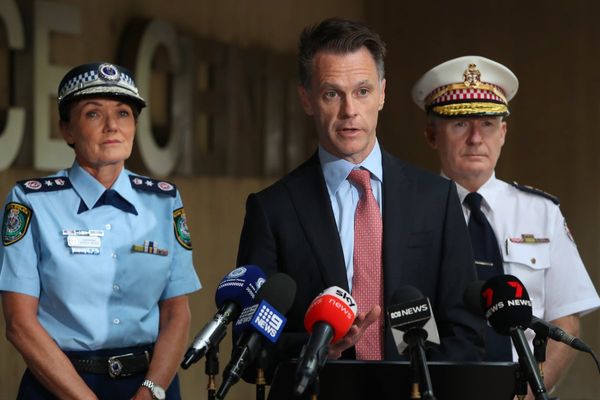WASHINGTON — Negotiations over a multibillion-dollar infrastructure package have forced President Joe Biden to an inflection point where he must choose between his campaign promises of seeking bipartisan consensus and achieving major policy changes sought by the liberal wing of his party.
The emerging legislation — focused on an issue long seen as the most likely area of bipartisan compromise in a divided Washington — could be Biden’s only chance to earn Republican support for a major legislative initiative before next year’s midterm elections. It is also seen by liberals as one of a dwindling number of opportunities for Biden to get congressional funding for elements of his plan outside of roads, bridges and other forms of physical infrastructure.
“The clock is ticking, and the pressure is rising on the outside, because without any of the major investments, and the major proposals that Biden put forward in the American Jobs Plan, he won’t be able to fulfill many of the commitments he made to the left and even just to the American public,” said Christy Goldfuss, senior vice president of energy and environment policy at the Center for American Progress. “So that balancing act is very difficult.”
Whichever path Biden takes will help define his presidency. The White House has put forward Memorial Day as the deadline to make progress on a deal but has intentionally declined to say what that means and what Biden would deem as sufficient.
“I don’t want to define that at this point, because that’s not really to our advantage,” White House press secretary Jen Psaki said last week, adding that the administration would “take stock” at the end of the month.
Biden during his campaign repeatedly said he wanted to heal the country, lower the temperature of discord and work with Republicans to address America’s crises. He declared in his inaugural address that unity is the path forward.
But the White House has since said that Biden is focused on bringing the American people together, not necessarily legislators in Washington, establishing an off-ramp for the president if he decides to press ahead with only Democratic votes for the legislation.
In March, Biden proposed spending $2 trillion on a wide-ranging series of initiatives, including the repair of roads and bridges and greater investment in the care of elderly men and women. The opening bid began a series of negotiations between Democrats and Republicans, both in the halls of Congress and at the White House, where the president last week hosted GOP House Minority Leader Kevin McCarthy of California and GOP Senate Minority Leader Mitch McConnell of Kentucky.
Biden and Republicans have clashed over what policies should be included in an infrastructure bill and how to pay for the proposal. GOP lawmakers have argued that priorities such as elder and child care shouldn’t be lumped in with physical infrastructure like roads and bridges. Biden has proposed raising the corporate tax rate while GOP lawmakers have said that is a non-starter for their party.
“There’s no doubt that there’s bipartisan support for infrastructure spending. I don’t see Republicans supporting tax increases coming out of the pandemic that we believe will have an impact on jobs,” said Marc Short, Coalition to Protect American Workers chairman, who was legislative director to former President Donald Trump when Republicans passed legislation cutting the corporate tax rate.
An initial proposal presented to the White House by a group of Senate Republicans nixed money for electric vehicles, schools, caregivers and many of Biden’s climate initiatives. Republicans involved in the negotiations said they discussed categories of infrastructure, the cost of Biden’s policy initiatives and ways to pay for them such as public-private partnerships during a Tuesday meeting with Cabinet secretaries and senior White House officials.
Sen. Roy Blunt, R-Mo., said after the meeting that he is still hopeful that an agreement can be reached by Memorial Day that could go beyond funding traditional infrastructure but no explicit offers had been made. “We’re still in the talking stage,” Blunt told reporters.
The White House in a statement said it would follow up with the senators later this week.
Biden’s desire to pass a package with Republican support is making liberals anxious. They expressed concern that priority items that get cut or are currently in a separate Biden proposal known as the families plan will not pass as a part of another piece of legislation down the line.
“This all needs to be passed in one big package as swiftly as possible,” Rahna Epting, executive director of MoveOn, said. “Every small piece that is passed and taken out decreases urgency for the rest.”
The interest in a bipartisan breakthrough is concentrated within the Democratic Party’s moderate factions, which unequivocally backed the president’s $1.9 trillion pandemic relief bill even as it passed along strictly partisan lines. But with hundreds of billions of dollars in additional spending at stake, centrist lawmakers say they are eager to garner Republican support for both policy and political reasons.
“I would greatly prefer a bipartisan solution,” said Rep. Carolyn Bourdeaux, a moderate Democrat who represents a suburban Atlanta district. “And I think the country needs it to heal and come together and recognize that we’re all capable of focusing on what Americans need in order to support our economy.”
Bourdeaux did not rule out passing an infrastructure bill with only Democratic votes, saying that abandoning any kind of infrastructure investment was “not an option.” But other Democrats emphasize that they see the current negotiations in a different light than the debate over the pandemic relief bill, where the party was convinced it needed to act swiftly to respond to an emergency situation.
“The COVID relief bill, very rarely do you see so much urgency among one party to get something done. People were hurting,” said Kristen Hawn, a senior Democratic strategist in close touch with many of the party’s moderate lawmakers. “It’s not the same going forward with other pieces of legislation.”
Hawn, like other Democrats, is skeptical that Republican support for the infrastructure legislation will ever fully materialize, saying Democrats must be prepared to pass the bill on their own if they become convinced the GOP is no longer sincerely negotiating.
But bringing GOP votes on board would still give the party potentially crucial political cover, particularly in competitive House districts where concerns about spending and partisanship run higher than in Democratic-dominated districts.
Even if the public is more open to government spending after the pandemic-induced economic downturn, Hawn said, authorizing trillions of dollars in spending carries political risk.
“That amount of money is always going to be a concern, particularly if there are no Republican votes,” Hawn said.







